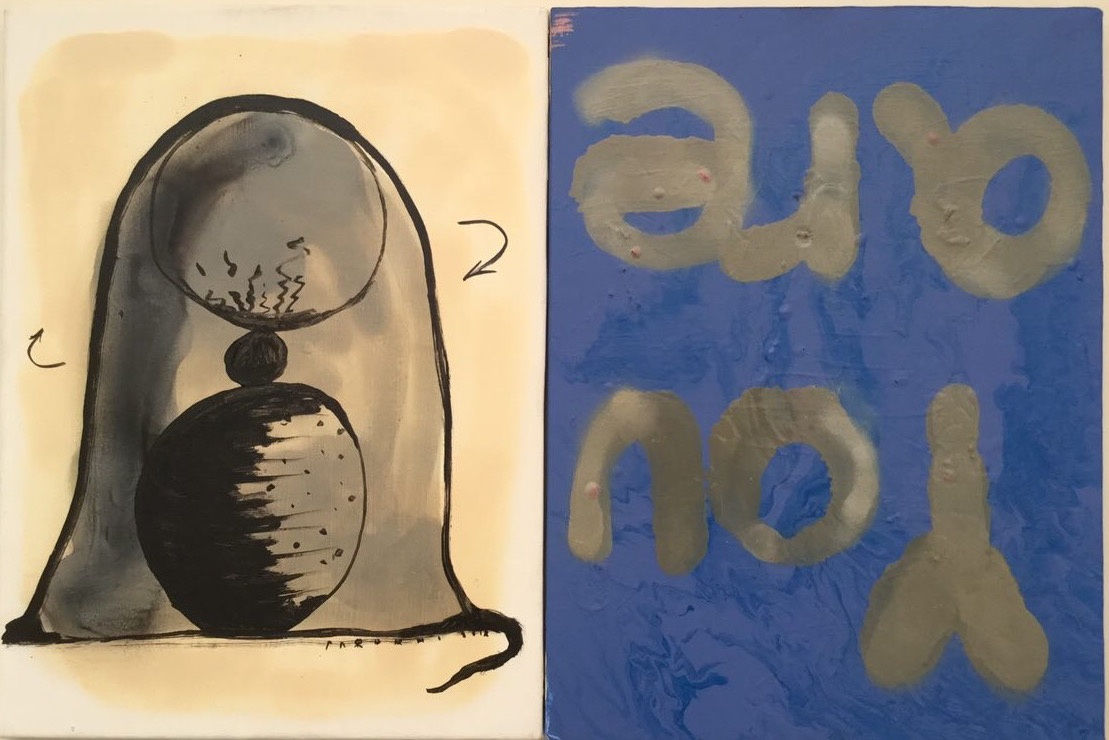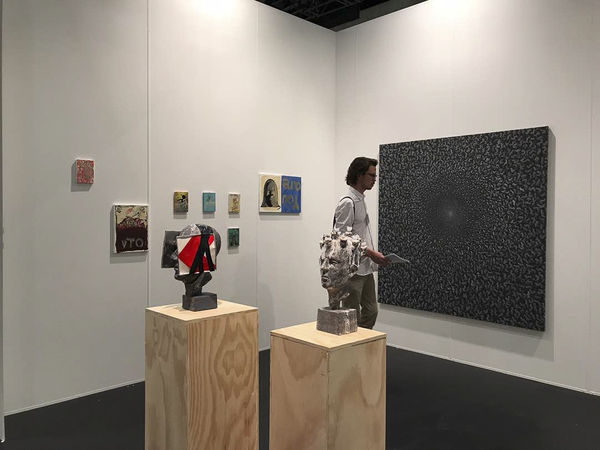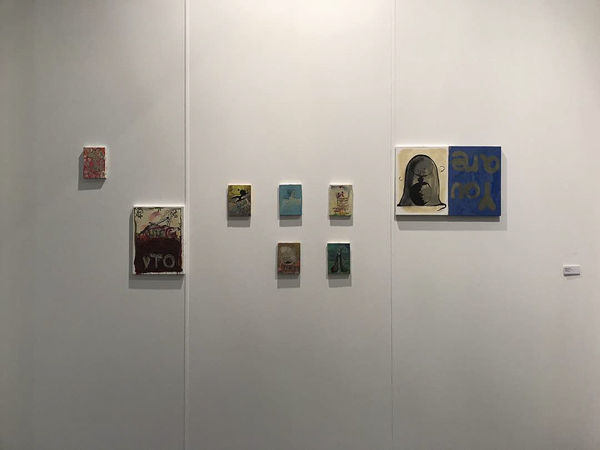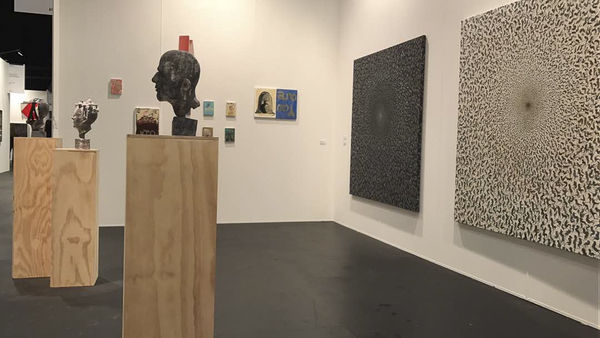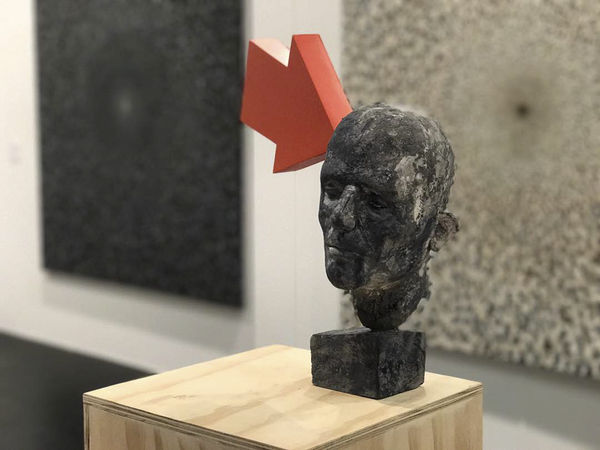Dastan at Sydney Contemporary 2017: Sydney Contemporary 2017
A presentation of works by artists Nariman Farrokhi, Mohammad Hossein Gholamzadeh, Meghdad Lorpour, and Peybak
Dastan is pleased to announce its participation in Sydney Contemporary 2017, presenting works by artists Nariman Farrokhi, Mohammad Hossein Gholamzadeh, Meghdad Lorpour, and Peybak. The presentation will consist of new works by all four artists. This is one of Dastan’s presentations with works by a very young group of artists, all under 35.
Three of Peybak’s 175x175cm acrylic on canvas works are presented from their “Abrakan*” series. Peybak comprises of Peyman Barabadi and Babak Alebrahim Dehkordi, (both born in 1984, Tehran, Iran). They have been working together as the “unified duo” since December 20, 2001. They start work on every piece together, both working on different parts of the painting until both declare it finished. They have taken inspirations from Persian poetry, mythical stories and miniature painting and created an imaginary world filled with silhouette-like creatures, not one similar to another. Swarms of these creatures are gravitated towards the center of the paintings, into darkness.
Meghdad Lorpour’s (b. 1983, Shiraz, Iran) large 200x285cm acrylic on canvas “Tangab” is inspired by a region with the same name near Firouz-Abad in the southern Iranian province of Fars. The area is home to an ancient dam, causing the plants and land to go under water for over three months in the year and ‘things’ to resurface after the water season. Other works from Meghdad’s “Trap” series will accompany “Tangab” and elaborate three-dimensional papier-mâché works. Meghdad Lorpour describes his works as a ‘way of going beyond humanity’. Mixing landscapes with unknown and mysterious man-made objects and artifacts, he plays with the concept of time and its effects.
Mohammad Hossein Gholamzadeh (b. 1986, Tehran, Iran) is a graduate of the Faculty of Fine Arts, University of Tehran. Currently an artist-in-residence at ArtSpace (Sydney, Australia), three of Mohammad’s works, created during his residency period, will be displayed at Dastan’s booth. Most of his sculptures are figurative works possessing different objects and clothing. These elements often contain allusions to history, traits, lifestyles and ideas. The paradoxical nature of the relationships between objects and their usages has always been of interest to Mohammad. Thus, by associating them to his figures, he tries to invite the viewer to contemplate on how humans inflicts pain onto themselves and others.
A series of small paintings by Nariman Farrokhi (b. 1983, Tehran, Iran) are also part of the presentation. Nariman Farrokhi is a self-taught artist. He mixes what he observes with a hyperactive sense of imagination and rearrangement through the use of simple material and technique. Confined to using only written language and gestures as means of communication, Nariman Farrokhi has used actual texts in many of his past works. This approach has gradually caused him to develop his own visual alphabet, i.e. writing system, that appear like hieroglyphs —seen as a cohesive elements in much of his body of work.







